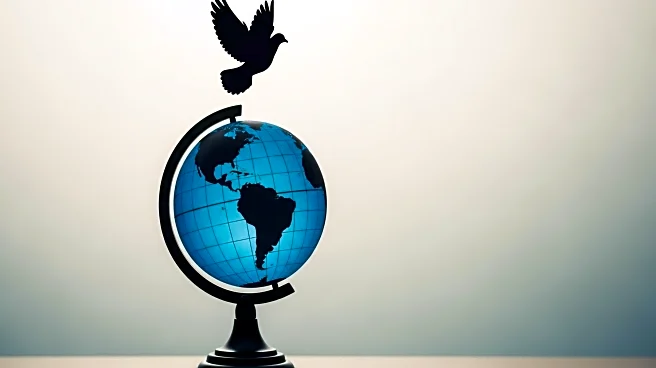What's Happening?
The United Nations is set to reduce its global peacekeeping force by 25% due to funding cuts from the United States. This decision will affect approximately 13,000 to 14,000 military and police personnel across nine missions, including those in Congo, South Sudan, and Lebanon. The reduction aligns with President Trump's 'America First' policy, which has led to a reassessment of U.S. contributions to international organizations. The U.N. plans to cut the peacekeeping budget by 15% this year.
Why It's Important?
The reduction in peacekeeping forces could impact global stability and security, particularly in regions with ongoing conflicts. The U.N.'s peacekeeping operations are crucial for maintaining peace and protecting civilians in war-torn areas. The funding cuts reflect broader shifts in U.S. foreign policy under President Trump, which may influence international relations and cooperation. Countries relying on U.N. peacekeepers may face increased challenges in managing conflicts and humanitarian crises.
What's Next?
The U.N. will need to reassess its peacekeeping strategies and prioritize missions based on available resources. Other member countries may be called upon to increase their contributions to fill the funding gap. The U.S. may continue to review its involvement in international organizations, potentially leading to further changes in global governance structures.
Beyond the Headlines
The decision to cut peacekeeping forces raises ethical questions about the responsibility of wealthy nations to support global peace efforts. It also highlights the challenges of balancing national interests with international commitments. The move may prompt discussions on the effectiveness and efficiency of U.N. operations.











